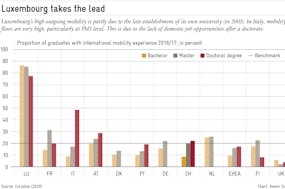We live in a world of big powers, as Switzerland itself is learning. Even if the country, a leading financial centre and a significant trading hub, remains prominent in international business, it is politically a dwarf.
Since the collapse of the Soviet Union, much of Switzerland’s former status as a neutral intermediary has been eroded: The country, it could be argued, has been one of the biggest losers from the end of the Cold War. Pressure from big countries has followed fast – and will be ever harder to resist. Just take current issues like the tortured settlement talks with the US over Swiss private banks; Washington’s Fatca financial disclosure diktat; demands for the automatic exchange of tax information; pressure for a more institutionalised relationship with the European Union, or what have you.
Might such setbacks be sufficient for the Swiss to start seeing smallness as a curse and EU membership as a blessing? Is Swiss exceptionalism an endangered species now bringing more pain than pride? Wouldn’t active participation in a bigger political club allow little Switzerland to become much more influential?
Whoever thinks so is suffering from delusions of grandeur that Switzerland itself should avoid. The weight of a small country remains modest, even when part of a bigger whole. But rather than suffering from being small, Switzerland should focus on the merits – and nurture them. For in smallness can lie strength – as demonstrated by the economic success of many small countries. Hardly any big country, for example, ranks among the top 10 when it comes to competitiveness or quality of life.
Though small, Switzerland has many attributes. Its federalism and direct democracy allow a rare degree of popular engagement in public affairs. They bolster the legitimacy of political decision making and reduce the potential damage from mistakes. Direct democracy works particularly well in smaller countries. The same can be said for neutrality, which even today remains of great value. ?
But in highlighting the specific strengths of small Switzerland, care must be taken not to treat exceptionalism statically or over-glorify it. For a successful future, the country mustn’t rest on its laurels, but develop them further – though that doesn’t mean joining the global mainstream or mixing messages. Take three examples:
- One of Switzerland’s most striking peculiarities is its “co-operative” understanding of the state – also defineable as a “bottom up” approach. Such characteristics make Switzerland what German speakers call a “Willensnation” – a near untranslateable term for a nation created by choice, by the voluntary association of different communities. Individual responsibility, the militia (volunteering) system, co-operation und consensus are the results, and form the bedrock of Switzerland’s social and economic success. So these attributes should be retained. But if they are to continue serving for the future, they must also be open to reform, based on entirely open discussion. For example: how to put an end to the periodically almost self destructive quarrels between different political groups without endangering the fundamental principles of subsidiarity and grass roots democracy?
- Equally challenging is to save direct democracy – that unique system of political decision making – from turning stale or everyday. It shouldn’t be possible, for example, to misuse referendum proposals, or actual plebiscites, to block the political process, or as electoral tools or for blatant populism. Higher hurdles are required for these instruments.
- The protection of individuals’ privacy and ownership rights are central to what distinguishes Switzerland from international competitors. They – in the true sense of the word – allow it to stand out above the rest: reliability, stability and seriousness. Bern’s very reactive, highly opportunistic, and somewhat unprincipled, concessions on bank secrecy have left some ugly marks on Switzerland’s reputed reliability. It would be a ghastly signal if, aligning with the international mainstream, Switzerland also abolished bank secrecy at home.
For small states, success doesn’t come through adjusting or becoming part of a bigger group, but by differentiation. Switzerland must do everything possible to remain attractive and innovative. It must protect the openness needed to foster progress and its liberal economic principles. As a stronghold for “the minority view”, amid a vast, global mainstream, a small country can do more than score points – it also has an important role to play for others as a benchmark, an inspiration and maybe, sometimes, as a barb too.





